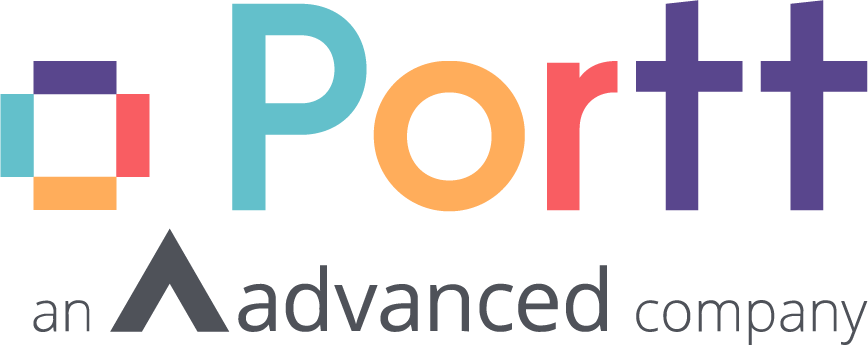Amid an insane year, changes described as ‘the most comprehensive reform to local government in Victoria for 30 years’ took place, changing how Australian organisations pursue their procurement function both nationally and overseas.
The Local Government Bill 2019 was passed by the Victorian Parliament on 17 March 2020 and has now become law in the form of the Local Government Act 2020 (LG Act 2020).
The below article will outline:
- A summary of overall changes
- Themes explored through the new Act
- What this means for Local Councils
- Key dates to keep in mind
- Streamlined and compliant procurement
The law amendments state that if a business or organisation has contracts up to the value of $150,000, they can move to a principle-based process for their procurement function, meaning these contracts will no longer require tendering processes.
Not only will these changes drastically improve the efficiency of procurement teams, but they will replace the current Local Government Act of 1989 that was described in Parliament as ‘outdated, incoherent and enmeshed in prescriptive detail’.
To keep up-to-date, you’re going to need to move quickly in changing your policies to make sure they’re in-line with the new requirements. Thankfully, procurement software like Portt makes change management a breeze, ensuring it’s easy for your people to do the right thing by embedding new processes into an easy-to-use platform.
Here’s everything you need to know about the changes and what it means for local councils.
A summary of the overall changes
The LG Act 2020 represents an overall shift to a new, more modern, ‘principles-based’ approach to local government procurement. The Act has been developed based on five principles:
- Community engagement
- Public transparency
- Strategic planning
- Financial management
- Service performance
These principles aim to enhance local government’s ability to be transparent and responsive to the communities and support stronger accountability to stakeholders and citizens.
Key features of the new and updated LG Act 2020 include:
Entitlements and allowances
The new Act strengthens the old Act’s provisions relating to the allowances and entitlements payable to Mayors, Deputy Mayors and Councillors. These allowances will now be determined by the Victorian Independent Remuneration Tribunal rather than the Minister and Councils (section 39).
Donations and gifts
The new Act introduces control of electoral campaign donations and gifts to support appropriate standards of integrity (section 306). Council staff must also keep and maintain a register of gifts and donations.
Procurement obligations
The new Act requires local government councils to prepare and adopt a Procurement Policy addressing certain matters (section 108). These include a description of the council’s criteria to evaluate whether a proposed contract provides value for money (their methodology). Procurement Policies must also be reviewed at least once during each four-year council term.
Ministerial oversight
Part 7 of the new LG Act 2020 establishes a framework for Ministerial oversight. This framework improves local councils’ accountability and governance by setting standards of conduct and enabling investigation of public interest complaints relating to significant governance failures or breaches of the law by councillors (section 184). It also allows for the Councilors to be stood down when they’ve violated these standards.
It’s important to note that the new Act retains some of the Minister’s powers under the old Act, including the ability to suspend a Council with evidence of significant governance failures or breaches of the law (section 230).
Confidential Information
The new Act introduces a definition of confidential information intended to include information which, if disclosed to the public at any time, is likely to be inappropriately detrimental to the Council or any person.[1]
A person who is or has been a Councillor, member of a delegated committee, or a member of Council staff who intentionally or recklessly discloses confidential information will commit an offence and liable to pay a significant penalty (currently a fine of approximately $19,800).
Themes explored through the new Act
Several themes have emerged through the development of the new Act and have been taken into account when considering how council procurement should function in the future.
Some of these themes include:
- The circular economy and circular procurement
- Sustainable procurement
- Social procurement
- Shared services and collaboration amongst councils
- Post-disaster and emergency procurement management
- The entrepreneurial power of councils
- Grants funding and procurement
- The Supplier Code of Conduct
What this means for local councils
Councils play a pivotal role in providing and maintaining a wide range of services, programs and infrastructure for their communities. With responsibility for managing community infrastructure and delivering critical public services every year, councils spend between 45 per cent and 60 per cent of their annual budgets on procurement.
Therefore, considerable power is vested in public officers of councils to source suppliers, manage contracts, and authorise payment for goods, services, and works – using public money. Therefore, Australian communities rightly expect council employees to perform their duties with integrity and impartiality and act in the public interest rather than their own.
Compliance to policy and new tendering thresholds can be managed in Portt through a structured business case, needs analysis, risk analysis and approval gateways. This ensures that you’ll always be making the best decisions for your council’s constituents, as Portt aligns seamlessly with your procurement processes and policies.
Understand what is expected of your organisation
When it comes to local government councils, lawmakers have a number of expectations.
They must prepare and adopt a procurement policy that must specify the principles, processes and procedures applying in respect of the purchase of goods, services or the carrying out of works.
They must utilise their procurement policies to set thresholds for when a public tender must be sought and criteria to be used to evaluate whether the proposed contracts to be entered into provide value for money. Thresholds set by procurement policies must not exceed the value prescribed by the regulations.
They must test the market when carrying out procurement activities to promote open and fair competition and value for money.
They must continue to implement and apply transparent and fair processes which record the basis for any decision.
They must task their audit and risk committees with independent, regular assessments and reporting of councils’ procurement policies and processes, with established internal structures that provide an independent review of processes, decision-making, and robust financial management.
They must uphold an environment conducive to good governance, including establishing processes with defined and implemented clear roles and responsibilities that foster effective decision-making processes and reflects transparency and accountability.
They must pursue innovation and continuous improvement.
New best practice guidelines
Local governments issue best practice guidance to councils on procurement practices. The Local Government Best Practice Procurement Guidelines help councils understand their obligations under the Act and develop and maintain best-practice approaches to procurement.
The guidelines can be used by local government procurement specialists and staff engaged in routine procurement activities. The guidelines detail legislative requirements and guide councils through the various stages of the procurement process: planning, implementation, management, evaluation and reporting. You can see the existing Best Practice Procurement Guidelines here.
New Best Practice Procurement Guidelines will be launched by Local Government Victoria on or after 1 July 2021, the actual release date of which will impact when your council is expected to turn over to the new procurement provisions.
You have six months to prepare your policy.
As was mentioned in the list above, the new Act requires local government councils to prepare and adopt their own Procurement Policy addressing certain matters (section 108).
You have up to six months to adopt a procurement policy in accordance with the new framework, from 1st July 2021 to 31st December 2021. Your procurement policy should include a description of the criteria you plan on using to evaluate whether a proposed contract provides value for money. Procurement policies must also be reviewed at least once during each four-year council term.
This means that your organisation needs to create or update your methodology to ensure it aligns with the new Act! The fundamental procurement practice principles that should be applied to every procurement, irrespective of its value and complexity, have not changed under the new framework.
These principles are:
- Value for money
- Open and fair competition
- Accountability
- Risk management
- Probity and transparency
- Sustainable and social procurement objectives
Until a new policy is adopted under s108 of the Local Government Act 2020, the preexisting procurement policy and the restrictions on the power of a council to enter into a contract (refer to s186 and s186A of the Local Government Act 1989) continue to apply.
It’s important to note that the Best Value Principle (s3C of the Local Government Act 1989) will be repealed on 1 July 2021. Consequently, councils that choose to adopt their new procurement policy after 1 July 2021 will no longer be able to refer to this principle in their decision-making unless they have named, defined and covered it in their pre-existing procurement policy.
Increased autonomy
One of the most significant changes being implemented as a result of the new Act is that councils are now autonomous in setting thresholds and defining their own processes and procedures when it comes to their procurement function.
The ceiling for thresholds will be prescribed by the regulations. One of these is that a council may decide not to change its procurement thresholds and processes but to keep up public tendering thresholds and quotations. Alternatively, based on its spend and purchasing (transactional) data, a council may, for example, choose to increase thresholds for public tendering for works from $200k to $750k but decide to lower the threshold for services and goods to $100k.
Existing Exemptions from tender requirements
In some situations, councils’ requirements to carry out a public tender or expression of interest for contracts valued at or over $150,000 (for goods or services) or $200,000 (for works) do not apply.
These include when:
- The council resolves that the contract must be entered into because of an emergency
- A council is acting as an agent for a group of councils and has carried out a public tender or expression of interest process on the group’s behalf
- The Minister for Local Government has approved the arrangement prior to the council entering into the contract
- The contract is for legal services (which are exempt under the Local Government (General) Regulations 2015).
Key dates to keep in mind
As it is such a complex, multi-layered implementation project that touches on so many layers of local government, the new Act will be proclaimed in four stages – April 2020, May 2020, October 2020 and the 1st of July 2021.
Local Government Victoria (LGV) has stated that they appreciate that the implementation of the Act and the ‘dynamic environment’ that COVID-19 presents will have resource implications on councils. This is front of mind in their plans for implementation with the sector. You can check out the implementation schedule updates through Council Bulletins and the Local Government Victoria website.
There are several key dates and deadlines that you must make a note of to ensure your local government council stays compliant with the new Act.
24 February 2021
- Councillor Code of Conduct must be submitted.
1 March 2021
- Community Engagement Policy must be submitted.
24 April 2021
- Gift Policy must be submitted.
30 June 2021
- Councillor Induction Training (must be conducted within six months after the Oath has been taken)
- Annual Budget must be submitted.
- Revenue and Rating Plan must be submitted.
31 October 2021
- Financial Plan must be submitted.
- Council Plan must be submitted.
- Community vision must be submitted.
- The annual report must be submitted.
31 December 2021
- CEO Employment and Remuneration Policy must be submitted
- Workforce Plan must be submitted
- Recruitment Policy must be submitted.
- Staff Code of Conduct must be submitted.
Streamlined and compliant procurement
Whether you choose to maintain your current operating methods or update them in light of the new requirements, Portt is a highly flexible solution that enables rapid re-deployment of process and compliance steps.
No matter if you’re considering updating your procurement processes now or in the future – get in touch with Portt for a chat about what our next-level procurement software can do for your local government council organisation.
Article written by: Chris Holmes, Co-CEO of Portt



